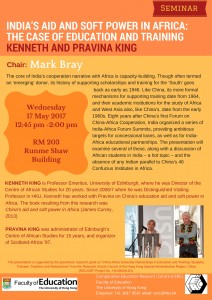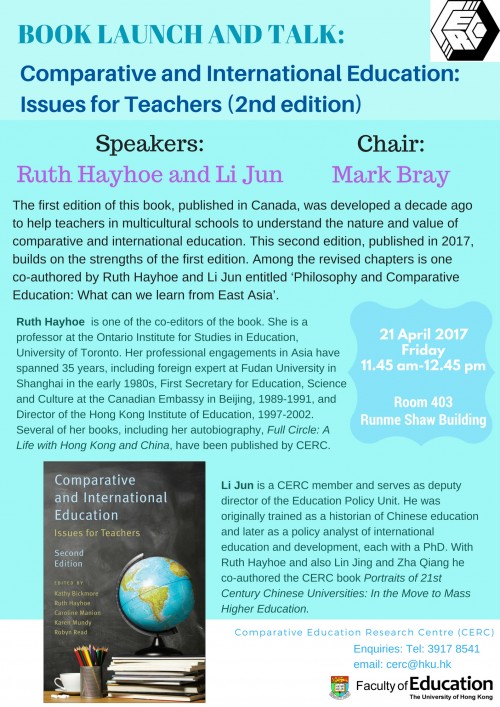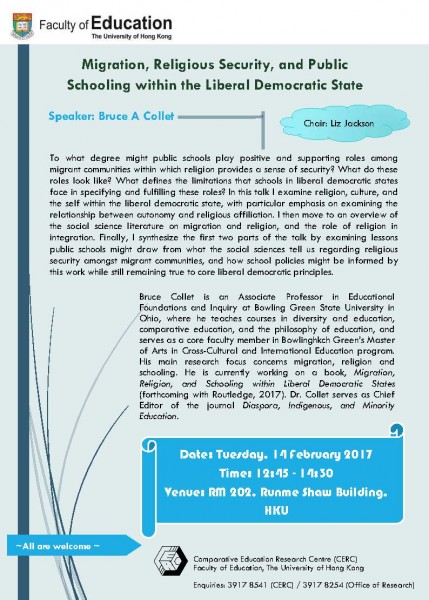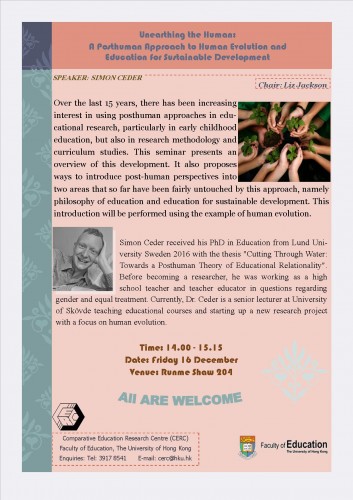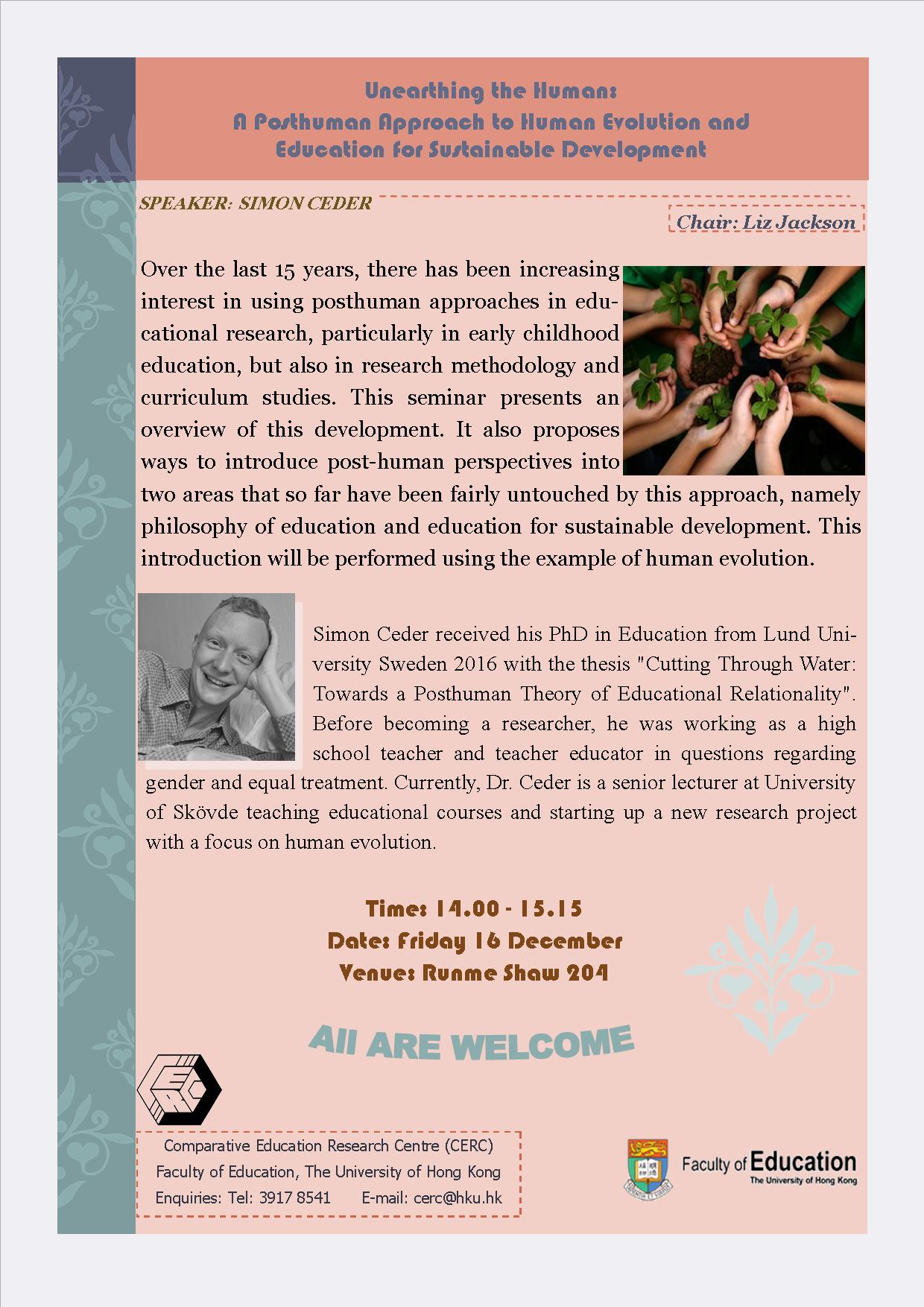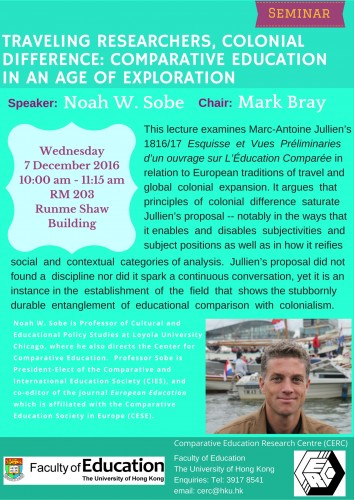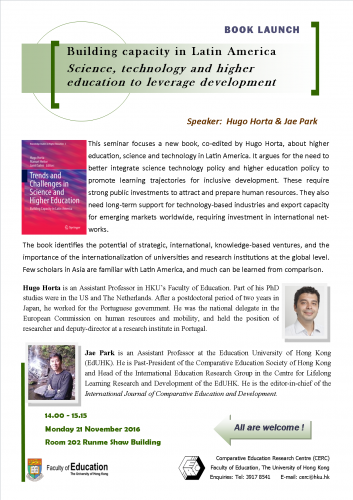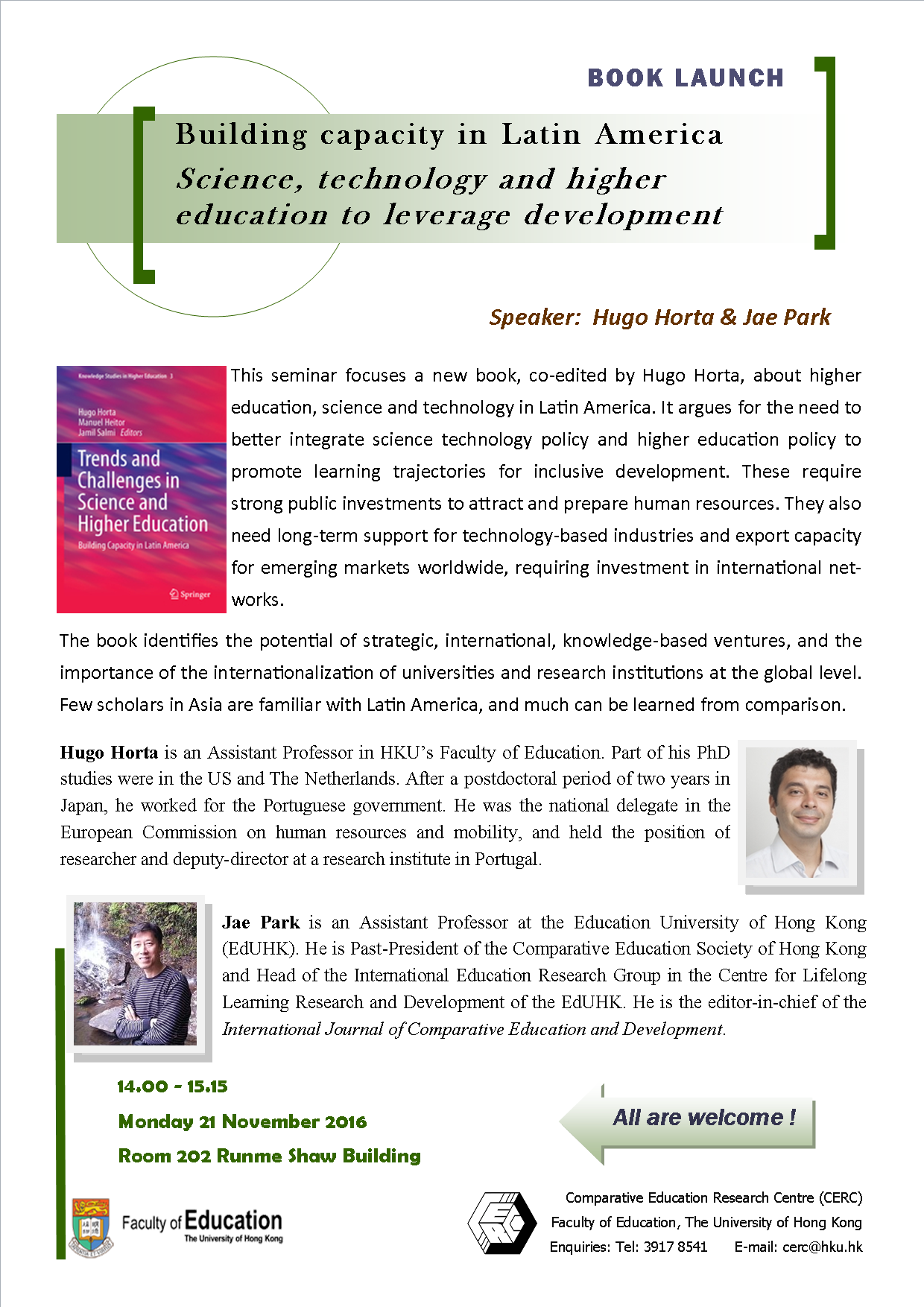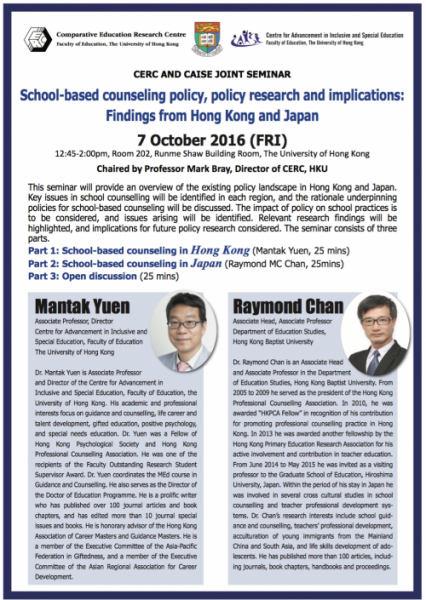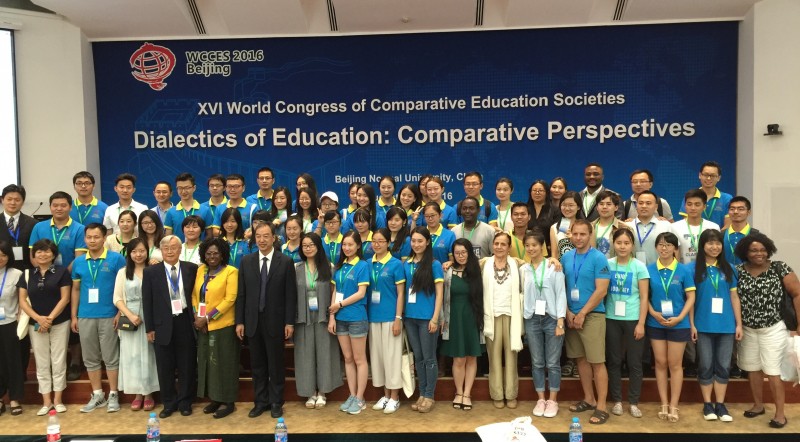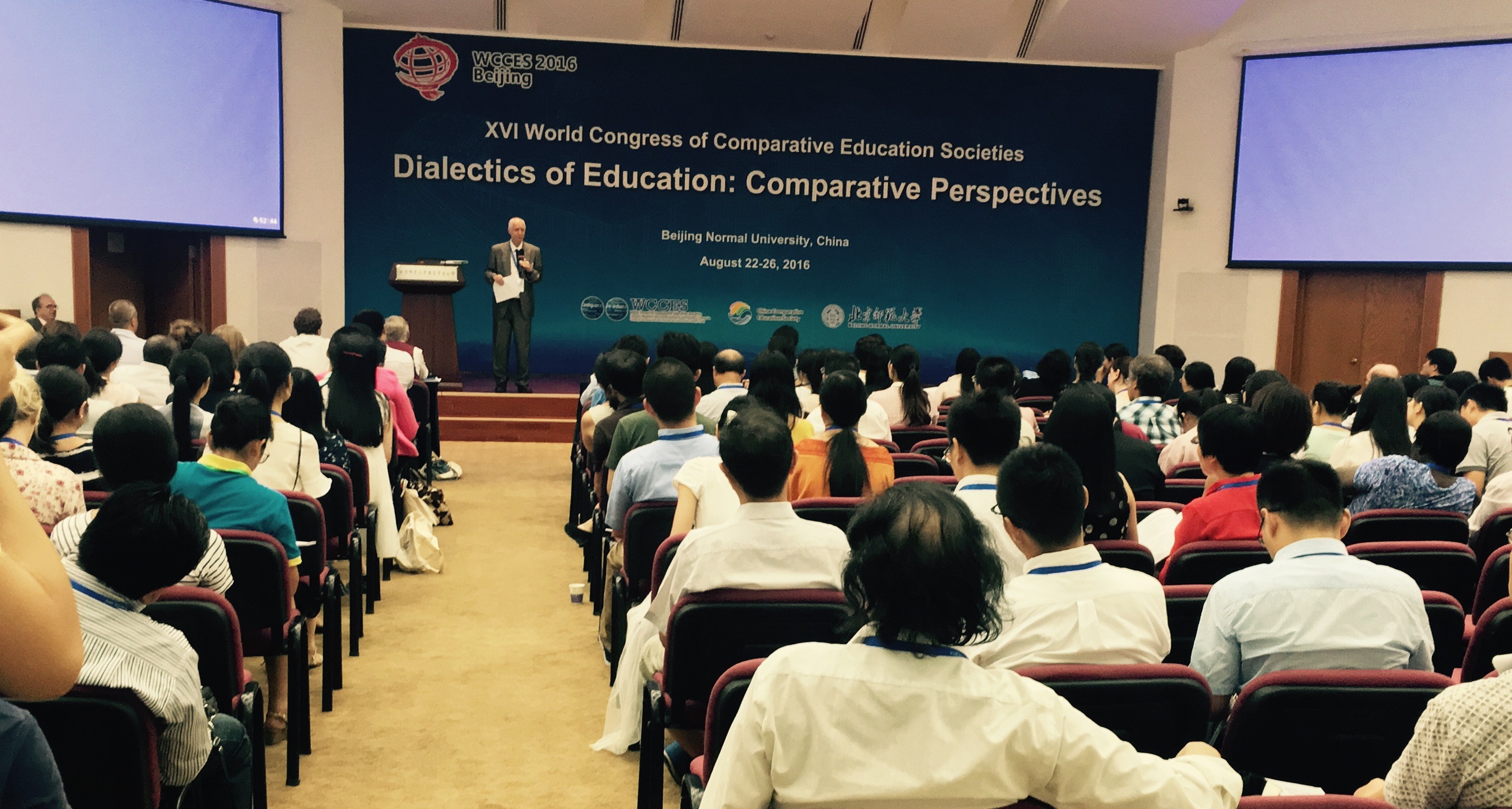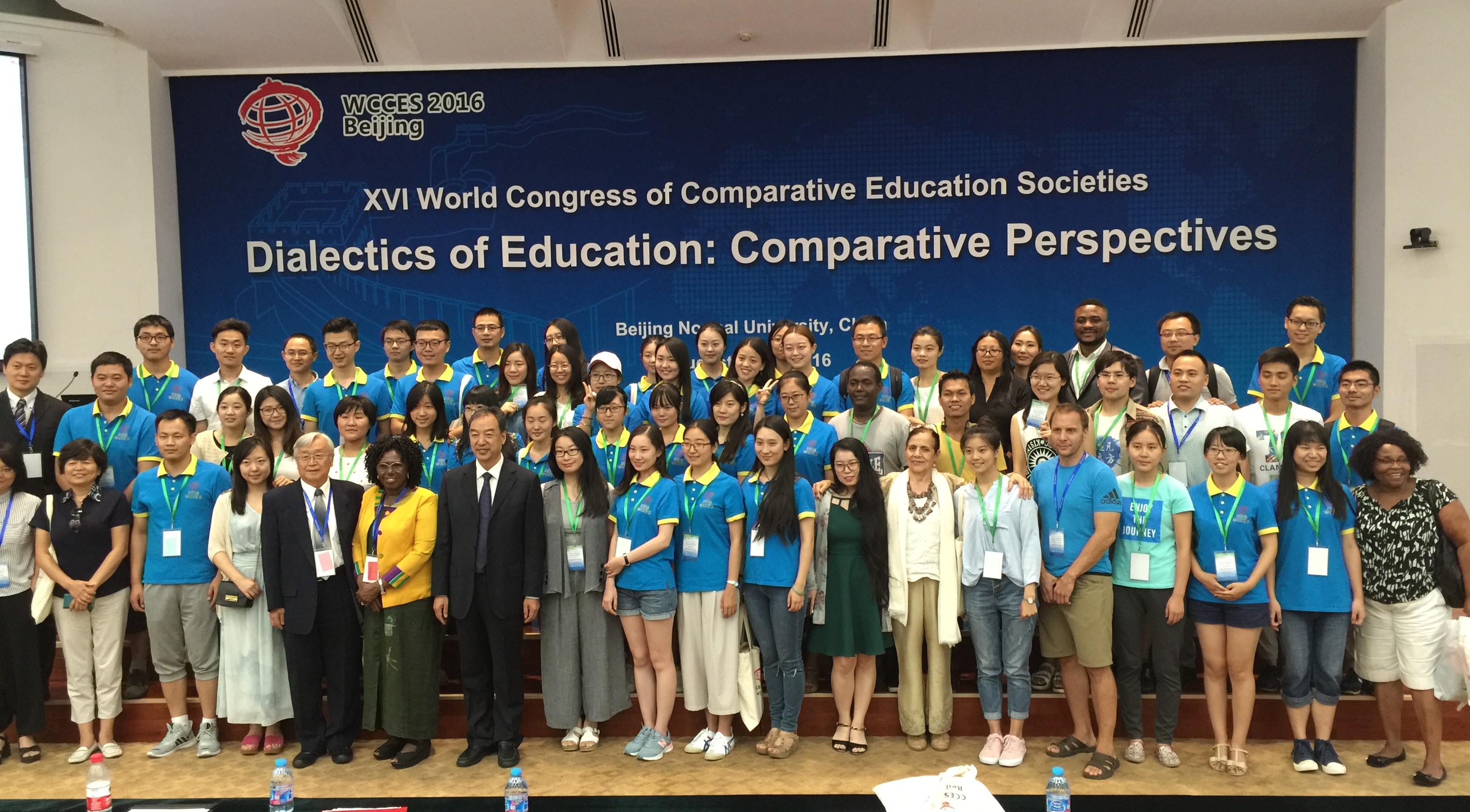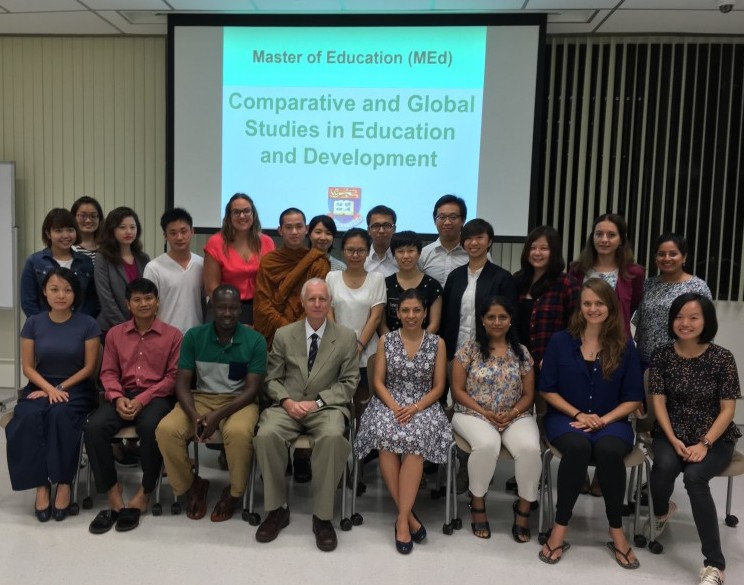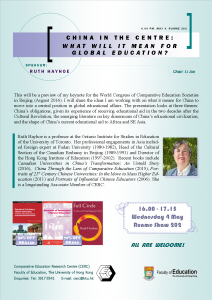You’re cordially invited to the next CERC seminar on the coming Wednesday, 17 May 2017 from 12:45 – 14:00 in Room 203 of Runme Shaw Building:
India’s Aid and Soft Power in Africa: The Case of Education and Training
By Kenneth and Pravina King
Chair: Mark Bray
The core of India’s cooperation narrative with Africa is capacity-building. Though often termed an ‘emerging’ donor, its history of supporting scholarships and training for the ‘South’ goes back as early as 1946. Like China, its more formal mechanisms for supporting training date from 1964, and their academic institutions for the study of Africa and West Asia also, like China’s, date from the early 1960s. Eight years after China’s first Forum on China-Africa Cooperation, India organized a series of India-Africa Forum Summits, providing ambitious targets for concessional loans, as well as for India- Africa educational partnerships. The presentation will examine several of these, along with a discussion of African students in India – a hot topic – and the absence of any Indian parallel to China’s 46 Confucius Institutes in Africa.
Kenneth KING is Professor Emeritus, University of Edinburgh, where he was Director of the Centre of African Studies for 20 years. Since 2006/7 when he was Distinguished Visiting Professor in HKU, Kenneth has worked with Pravina on China’s education aid and soft power in Africa. The book resulting from this research was China’s aid and soft power in Africa (James Currey, 2013)
Pravina KING was administrator of Edinburgh’s Centre of African Studies for 15 years, and organizer of Scotland-Africa ’97.
Date: Wednesday, 17 May 2017
Time: 12:45 – 14:00
Venue:
Room 203 Runme Shaw Building
The presentation is supported by the presenters’ research grant on “China-Africa University Partnerships in Education and Training: Students, Trainees, Teachers and Researchers” from the Research Grants Council of the Hong Kong Special Administrative Region, China (RGC/GRF Project No.: HKU842912H).
